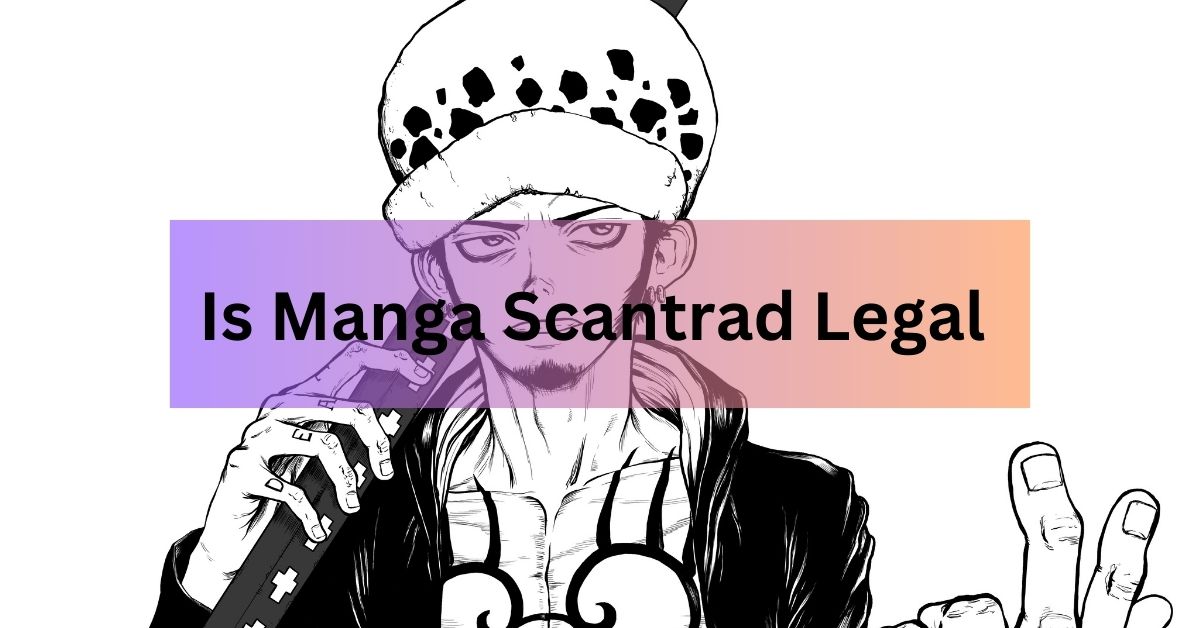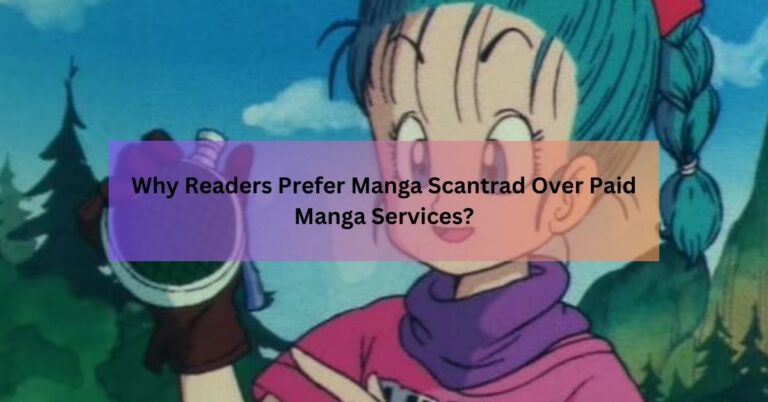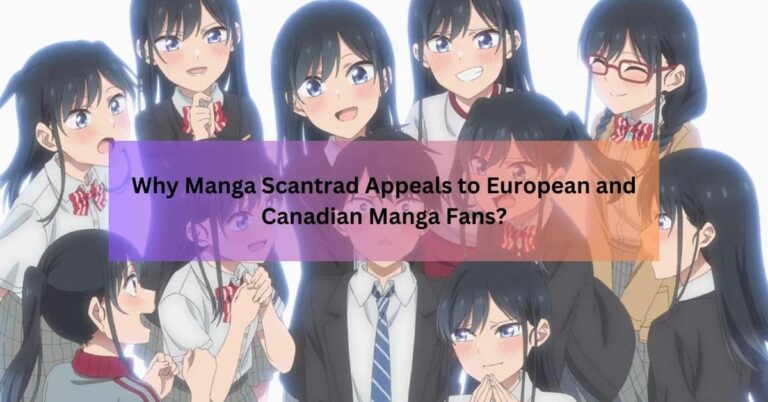Is Manga Scantrad Legal – Understanding the Copyright Issues!
Manga has become a global phenomenon, captivating audiences with its unique storytelling and artistic style. However, the rise of scanlation—fan translations of manga—has sparked a heated debate about legality and copyright issues.
The question, “”Is Manga Scantrad Legal? Understanding the Copyright Issues,”” is one that many fans grapple with as they navigate the world of online manga. Scantrad, short for scanlation, involves the unauthorized translation and distribution of manga, often leading to confusion about the rights of creators and the responsibilities of fans.
In this article, we will delve deep into the complexities surrounding scanlation, exploring the legal ramifications, the ethical considerations, and the impact on the manga industry. By understanding the nuances of copyright law and the implications of scantrad, readers can make informed decisions about their manga consumption.
This comprehensive guide aims to clarify the often murky waters of manga scantrad legality, providing insights that go beyond surface-level discussions. So, if you’ve ever wondered, “”Is Manga Scantrad Legal? Understanding the Copyright Issues,”” you’re in the right place. Let’s embark on this journey to uncover the truth behind scanlation and its legal standing in the world of manga.
What is Manga Scantrad?
Manga scantrad refers to the process of scanning, translating, and distributing manga that has not been officially licensed for release in a particular language or region. This practice is often carried out by fans who are passionate about sharing their favorite series with a broader audience. While scanlation can make manga accessible to non-Japanese speakers, it raises significant legal and ethical questions.
Scantrad typically involves several steps: first, the manga is scanned from a physical copy, then translated into another language, and finally, the translated text is overlaid onto the original artwork. This process can be time-consuming and requires a certain level of skill in both translation and graphic design. While many scanlation groups operate with the best intentions, the legality of their actions is often called into question.
The Legal Framework of Copyright:
To understand whether manga scantrad is legal, it is essential to grasp the basics of copyright law. Copyright is a legal framework that grants creators exclusive rights to their original works, including the right to reproduce, distribute, and display their creations. In most countries, copyright protection is automatic upon the creation of a work, meaning that the creator does not need to register their work to enjoy these rights.
In the context of manga, the original authors, illustrators, and publishers hold the copyright to their works. This means that any unauthorized reproduction or distribution, including scanlation, infringes on these rights. The legal consequences of copyright infringement can be severe, ranging from cease-and-desist orders to monetary damages.
International Copyright Laws and Manga:
Copyright laws vary significantly from country to country, which complicates the legality of manga scantrad on an international scale. In Japan, where most manga originates, copyright laws are stringent, and unauthorized distribution is taken very seriously. However, in other countries, the enforcement of copyright can be less rigorous, leading to a gray area for scanlation groups.
The Berne Convention, an international agreement governing copyright, establishes that works are protected in all member countries. This means that a manga published in Japan is automatically protected in other countries that are part of the convention. However, the enforcement of these laws can differ, leading to varying levels of risk for scanlation groups operating outside Japan.
The Impact of Scantrad on the Manga Industry:
One of the most significant arguments against manga scantrad is its potential impact on the manga industry. Publishers and creators rely on sales to sustain their livelihoods, and unauthorized distribution can lead to lost revenue. When fans access manga for free through scanlation, they may be less likely to purchase official releases, which can harm the industry in the long run.
However, some argue that scanlation can also serve as a promotional tool, introducing new readers to series they might not have discovered otherwise. In this sense, scantrad can create a demand for official translations and licensed releases. This duality complicates the conversation around the legality and ethics of scanlation, as it raises questions about the balance between accessibility and the rights of creators.
Ethical Considerations of Manga Scantrad:
Beyond the legal implications, there are ethical considerations surrounding manga scantrad. Many fans who engage in scanlation do so out of a love for the medium and a desire to share their favorite stories with others. However, this passion can sometimes overshadow the rights of the original creators.
Ethically, it is essential to consider the impact of scanlation on the creators and the industry. While fans may feel justified in sharing translations, it is crucial to recognize that creators invest significant time and resources into their work. Supporting official releases not only respects the rights of creators but also ensures the continued production of quality content.
Alternatives to Scantrad:
For fans who want to enjoy manga legally and ethically, there are several alternatives to scantrad. Many publishers now offer official translations of popular series, often available digitally. Services like Crunchyroll Manga, VIZ Media, and ComiXology provide access to a vast library of manga, allowing fans to support creators while enjoying their favorite titles.
Additionally, crowdfunding platforms have emerged, enabling fans to support independent creators directly. By contributing to projects on platforms like Kickstarter or Patreon, fans can help ensure that their favorite series receive the attention and resources they deserve.
How to Identify Legal Manga Sources?
With the rise of digital content, it is essential for fans to know how to identify legal manga sources. Here are some tips to help you navigate the landscape:
- Check Publisher Websites: Many publishers have official websites where they list their licensed titles. This is a reliable way to ensure you are accessing legal content.
- Look for Digital Platforms: Services like VIZ Media, Kodansha, and Shonen Jump offer legal access to a wide range of manga. Subscribing to these platforms supports the industry.
- Follow Social Media Accounts: Publishers often announce new releases and licensing deals on their social media accounts. Following these accounts can keep you informed about legal options.
- Avoid Unauthorized Sites: Be cautious of websites that offer free manga without proper licensing. These sites often engage in illegal distribution and can pose risks to your device’s security.
Legal Consequences of Scantrad:
Engaging in manga scantrad can lead to various legal consequences. Publishers and creators have the right to protect their intellectual property, and they may take action against scanlation groups. Common legal repercussions include:
- Cease-and-Desist Orders: Publishers may issue cease-and-desist orders to scanlation groups, demanding that they stop distributing unauthorized content.
- Monetary Damages: In some cases, scanlation groups may face lawsuits seeking monetary damages for copyright infringement.
- Website Takedowns: Many scanlation websites have been taken down due to legal action, making it difficult for fans to access their favorite titles.
- Criminal Charges: In extreme cases, individuals involved in large-scale scanlation operations may face criminal charges, leading to fines or imprisonment.
Community Perspectives on Scantrad:
The manga community is divided on the issue of scantrad. Some fans argue that scanlation is a necessary evil, providing access to content that may not be available in their region. Others believe that supporting official releases is crucial for the health of the industry.
Discussions around scantrad often highlight the importance of balancing accessibility with respect for creators’ rights. Many fans advocate for a middle ground, where scanlation can coexist with official releases, provided that it does not undermine the industry.
Future of Manga Scantrad:
As the manga industry continues to evolve, so too will the conversation around scantrad. With the rise of digital content and global distribution, publishers are increasingly recognizing the need to make their works accessible to international audiences. This shift may lead to more official translations and licensed releases, reducing the demand for scanlation.
However, as long as there is a gap between the availability of official content and fan demand, scantrad will likely persist. The future of manga scantrad will depend on how the industry adapts to changing consumer preferences and the ongoing dialogue about copyright and accessibility.
FAQs:
1. Is scanlation illegal?
Scanlation is generally considered illegal because it involves the unauthorized reproduction and distribution of copyrighted material. Copyright law grants creators exclusive rights to their works, and scanlation infringes on these rights. While some scanlation groups operate with good intentions, the legal implications can be severe, including cease-and-desist orders and monetary damages.
2. Are there any legal scanlation groups?
While most scanlation groups operate without authorization, some may have agreements with publishers to produce fan translations. However, these cases are rare. It is essential to verify the legitimacy of any scanlation group before accessing their content. Fans are encouraged to support official releases to ensure that creators receive the recognition and compensation they deserve.
3. What are the consequences of participating in scanlation?
Participating in scanlation can lead to various legal consequences, including cease-and-desist orders, monetary damages, and website takedowns. In extreme cases, individuals involved in large-scale scanlation operations may face criminal charges. It is crucial for fans to understand the risks associated with engaging in scanlation.
4. How can I support my favorite manga creators legally?
To support your favorite manga creators legally, consider purchasing official translations through licensed publishers or digital platforms. Subscribing to services like VIZ Media or Crunchyroll Manga allows you to access a wide range of titles while ensuring that creators receive compensation for their work. Additionally, supporting independent creators through crowdfunding platforms can help sustain the industry.
5. What should I do if I find a scanlation site?
If you come across a scanlation site, it is essential to approach it with caution. While it may be tempting to access free content, remember that these sites often engage in illegal distribution. Instead, consider seeking out official sources for the manga you want to read. Supporting legal platforms helps ensure the continued production of quality content.
6. Can scanlation be considered a form of fan art?
While scanlation may share some similarities with fan art, it is fundamentally different. Fan art typically involves creating original works inspired by existing characters or stories, while scanlation involves reproducing and distributing copyrighted material without permission. As such, scanlation is generally not considered a legal form of fan expression.
7. What is the future of manga scantrad?
The future of manga scantrad will depend on how the industry adapts to changing consumer preferences and the ongoing dialogue about copyright and accessibility. As publishers increasingly recognize the need to make their works available to international audiences, the demand for scanlation may decrease. However, as long as there is a gap between official content availability and fan demand, scantrad will likely persist.
Conclusion:
In conclusion, the question “”Is Manga Scantrad Legal? Understanding the Copyright Issues”” is a complex one that requires careful consideration of legal, ethical, and industry perspectives. While scanlation may provide access to beloved manga for fans around the world, it also raises significant concerns about copyright infringement and the rights of creators.
As we have explored, copyright law protects the original works of authors and publishers, making unauthorized reproduction and distribution illegal. The impact of scantrad on the manga industry cannot be understated, as it can lead to lost revenue for creators and publishers alike. However, the ethical considerations surrounding scanlation also highlight the passion and dedication of fans who seek to share their love for manga with others.
For those who wish to enjoy manga legally and ethically, there are numerous alternatives available, including official translations and digital platforms. By supporting licensed releases, fans can ensure that creators receive the recognition and compensation they deserve, ultimately contributing to the health of the manga industry.
As the landscape of manga continues to evolve, the conversation around scantrad will likely persist. It is essential for fans to stay informed about the legal implications and ethical considerations of their choices. By understanding the complexities of the issue, readers can make informed decisions about their manga consumption and contribute to a thriving, respectful community.
Ultimately, the question “”Is Manga Scantrad Legal? Understanding the Copyright Issues”” serves as a reminder of the importance of respecting creators’ rights while fostering a love for the medium. As we navigate the world of manga, let us strive to support the artists and storytellers who bring these incredible works to life.”





